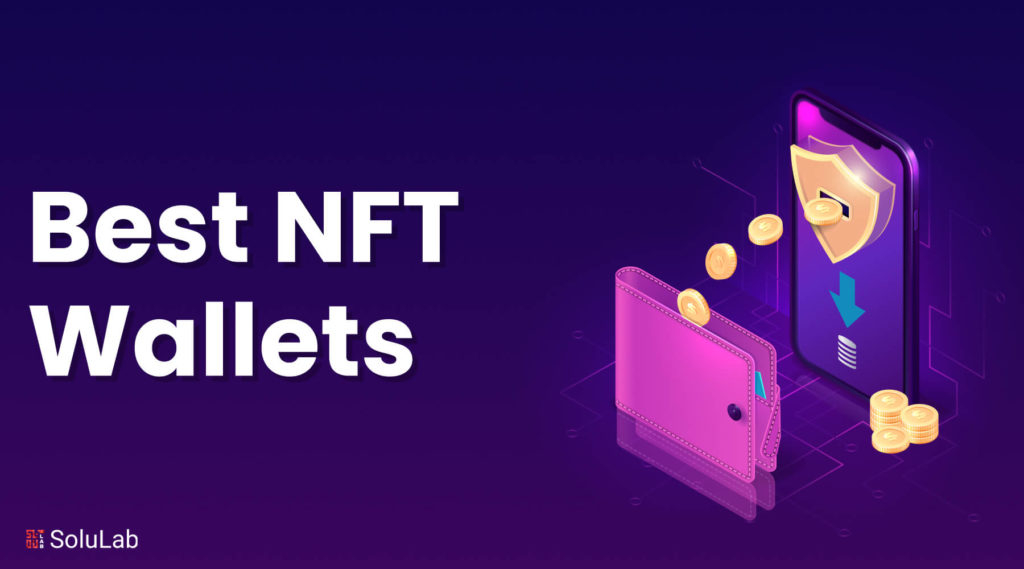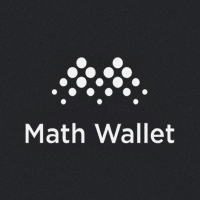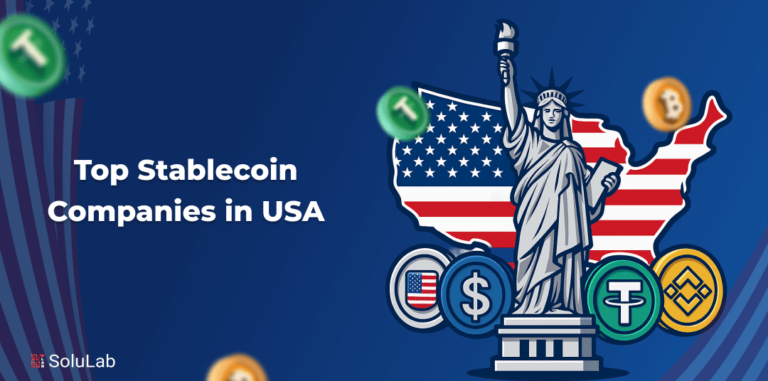
NFTs, unique digital tokens representing ownership of art, music, collectibles, virtual real estate, and more, have transcended traditional boundaries, redefining how we perceive and exchange value in the digital realm. With the soaring popularity of NFTs, the demand for secure and feature-rich NFT wallets has grown exponentially, prompting developers to introduce cutting-edge solutions to meet the evolving needs of users.
In this landscape, NFT wallets have evolved far beyond mere storage solutions. They now serve as multifunctional hubs, seamlessly integrating with NFT marketplaces, decentralized applications (dApps), and decentralized finance (DeFi) protocols. These next-generation NFT wallets offer users an all-in-one platform to effortlessly explore, trade, and participate in the dynamic NFT ecosystem.
With the advent of blockchain interoperability, NFT wallets in 2025 transcend the boundaries of individual networks. They boast cross-chain functionality, enabling seamless asset transfers between various blockchain ecosystems. This cross-chain compatibility not only enhances accessibility but also unlocks new opportunities for asset diversification and cross-platform collaboration.
What is the Importance of Choosing the Best Crypto Wallets for NFTs?
In the rapidly evolving world of blockchain technology, non-fungible tokens (NFTs) have emerged as a revolutionary concept, allowing the ownership and trading of unique digital assets. With NFTs gaining immense popularity across various industries, such as art, gaming, music, and collectibles, the importance of safeguarding these valuable assets cannot be overstated. This is where choosing the best crypto wallets for NFTs becomes crucial.
- Security of Digital Assets: The primary importance of selecting the best crypto wallet for NFTs lies in ensuring the security of digital assets. NFTs are indivisible and represent one-of-a-kind items, making them highly valuable. A secure crypto wallet with robust encryption and private key management safeguards against unauthorized access and potential hacking attempts. A compromised wallet could lead to an irretrievable loss of NFTs and the assets they represent.
- Protection against Scams and Phishing Attacks: The world of cryptocurrencies and NFTs is not immune to scams and phishing attacks. Choosing a reputable and reliable crypto wallet can protect users from falling victim to fraudulent schemes and phishing attempts. Leading crypto wallets implement strong security measures and stay updated with the latest security protocols to provide a safe environment for storing and managing NFTs.
- Compatibility with NFT Standards and Blockchains: NFTs are created and exist on specific blockchains, and they adhere to various NFT standards, such as ERC-721, ERC-1155, and TRC-721. The best crypto wallets for NFTs ensure compatibility with these standards and the blockchains on which NFTs are minted. A wallet that supports multiple NFT standards allows users to manage a diverse range of digital assets seamlessly.
- Ease of Use and Accessibility: A user-friendly interface and intuitive design are essential factors when choosing a crypto wallet for NFTs. NFT enthusiasts, artists, and collectors often have varying levels of technical expertise, and a well-designed wallet streamlines the process of buying, selling, and transferring NFTs. The best crypto wallets prioritize accessibility, making it easier for users to manage their NFT portfolios efficiently.
- Additional NFT Features and Functionalities: Beyond basic storage and management, the best crypto wallets for NFTs may offer additional features that enhance the NFT experience. These features could include easy integration with NFT marketplaces, seamless bidding and auction functionalities, NFT curation tools, and direct interaction with creators and buyers. Such functionalities empower users to actively engage with the NFT ecosystem.
- Cross-Chain Interoperability: As the NFT market continues to expand, cross-chain interoperability becomes increasingly important. Top-tier crypto wallets may offer cross-chain capabilities, allowing users to access and manage NFTs across different blockchain platforms. This versatility enables users to leverage NFTs from various ecosystems and opens up new opportunities for trading and collaboration.
- Community and Support: The best crypto wallets for NFTs often have active communities and robust customer support. Engaging with a vibrant community can provide valuable insights, tips, and updates about the NFT space. Additionally, responsive customer support can address any technical issues or inquiries promptly, ensuring a smooth and hassle-free experience for users.
How do NFT Wallets Differ from Crypto Wallets?
NFT (Non-Fungible Token) wallets and traditional crypto wallets may seem similar at first glance, as they both facilitate the storage and management of digital assets. However, they serve distinct purposes and offer unique features tailored to their respective use cases. In this article, we will explore the key differences between NFT wallets and the best crypto wallets for NFT to provide a clear understanding of their functionalities and benefits.
- Definition and Purpose: NFT wallets are specifically designed to store and manage non-fungible tokens, which represent unique and indivisible digital assets. These assets can range from digital art, collectibles, virtual real estate, music, and much more. NFT wallets ensure secure ownership and transfer of these unique tokens on different blockchain networks, such as Ethereum or Binance Smart Chain. On the other hand, crypto wallets for NFT are general-purpose wallets that cater to various cryptocurrencies and tokens. These wallets are designed to store fungible tokens like Bitcoin (BTC), Ethereum (ETH), or stablecoins, which are interchangeable and hold the same value.
- Token Support: NFT wallets support the storage and management of non-fungible tokens, adhering to specific NFT standards such as ERC-721 or ERC-1155 on Ethereum. They are optimized to handle the unique metadata and characteristics of NFTs. Crypto wallets for NFT, also known as multi-currency wallets, support various cryptocurrencies and tokens based on the blockchain networks they integrate with. They offer the flexibility to store and manage a diverse range of fungible assets.
- User Interface: NFT wallets often have specialized user interfaces that cater to the needs of NFT enthusiasts. They may feature galleries or visual displays to showcase NFT collections and provide easy access to individual NFT details. Crypto wallets generally have a more utilitarian user interface focused on simplicity and ease of use for handling multiple cryptocurrencies. The user interface prioritizes basic transaction functionalities and account management.
- NFT-Specific Features: NFT wallets offer unique features tailored for NFT enthusiasts. These may include NFT marketplace development integration, which allows users to buy, sell, or trade NFTs directly from their wallets. Additionally, they may provide tools for artists to mint NFTs or set royalty rates for secondary sales. While Crypto wallets prioritize security and ease of use, they may not include specific features for NFT transactions or management. Instead, they focus on optimizing the storage and transfer of various cryptocurrencies.
- Security Considerations: NFT wallets incorporate robust security measures to protect the ownership and integrity of unique NFTs. They emphasize the safe storage of private keys and recovery phrases to prevent unauthorized access. Crypto wallets also prioritize security, implementing encryption and secure authentication methods. However, since they deal with a broader range of assets, they may not have the same NFT-specific security considerations as NFT wallets.
Here are the 8 Best NFT Wallets for 2025

1. Trust Wallet
Trust Wallet stands at the forefront as one of the best NFT wallets, providing users with a secure and user-friendly gateway to the vibrant world of non-fungible tokens (NFTs). As the NFT revolution continues to reshape digital ownership, Trust Wallet has evolved to cater to the diverse needs of NFT enthusiasts, offering a comprehensive platform that seamlessly integrates NFTs with the decentralized finance (DeFi) landscape. Trust Wallet's commitment to interoperability allows users to transcend the limitations of individual blockchain networks. With cross-chain functionality, Trust Wallet enables the seamless transfer of NFTs between different blockchain ecosystems. Whether an NFT originates from Ethereum, Binance Smart Chain, Polkadot, or other compatible networks, Trust Wallet bridges the divide, enhancing accessibility and promoting broader adoption of NFTs.

2. MetaMask
In the fast-paced world of NFTs, MetaMask emerges as the best NFT wallet for 2024, redefining the way users interact with non-fungible tokens. As the NFT revolution continues to sweep the digital landscape, MetaMask stands as a trusted and innovative solution, providing a secure, versatile, and user-friendly platform for managing and exploring the boundless world of digital assets. One of the defining features that set MetaMask apart is its steadfast commitment to security. The wallet employs robust encryption methods, ensuring that users' private keys and sensitive data remain protected from potential threats. Moreover, MetaMask's integration with hardware wallets provides an added layer of security, instilling confidence in users as they navigate the NFT landscape.

3. Ledger Wallet
Ledger hardware wallets emerged as the gold standard for NFT enthusiasts seeking the highest level of security and reliability in the management of their valuable digital assets. With the explosive growth of the NFT market, the need for robust storage solutions has never been more critical, and Ledger has positioned itself at the forefront of this rapidly evolving landscape. As a pioneer in the cryptocurrency hardware wallet industry, Ledger has garnered a reputation for its unwavering commitment to safeguarding users' private keys and providing a secure environment for NFT ownership. One of the defining features of Ledger hardware wallets is their robust security architecture. These devices incorporate state-of-the-art secure elements that protect private keys and ensure transactions are signed within the hardware wallet itself, eliminating exposure to external threats. With support for biometric authentication and PIN protection, Ledger users can rest assured that their NFTs remain safe even if their physical wallet is lost or stolen.

4. Coinomi
Coinomi stands out as one of the best NFT wallets, offering a feature-rich and secure platform for users to interact with their valuable non-fungible tokens (NFTs). With its user-friendly interface, robust security measures, and commitment to constant innovation, Coinomi has established itself as a top choice for NFT enthusiasts seeking a reliable and convenient wallet solution. Coinomi's reputation as a leading NFT wallet stems from its exceptional user experience. The wallet's intuitive design allows both newcomers and seasoned users to navigate seamlessly through the platform. Coinomi's user-friendly interface ensures that managing, storing, and trading NFTs is a hassle-free and enjoyable experience.

5. Coinbase Wallet
Coinbase Wallet stands tall as one of the best NFT wallets in the fast-evolving world of non-fungible tokens (NFTs). Renowned for its reliability, security, and user-centric features, Coinbase Wallet has solidified its position as a trusted hub for users to store, manage, and explore the ever-expanding universe of digital collectibles and unique assets. Security is at the core of Coinbase Wallet's success. With a strong emphasis on safeguarding users' funds and data, Coinbase Wallet implements cutting-edge security measures. It provides users with full control of their private keys, ensuring that they are the sole custodians of their NFTs. Coinbase Wallet's seamless integration with major NFT marketplaces and dApps sets it apart from the competition. Users can effortlessly connect to popular platforms and engage in NFT trading, auctions, and interactions directly from the wallet interface.

6. Math Wallet
Math Wallet established itself as one of the best NFT wallets, leading the charge in providing a secure, user-friendly, and feature-rich platform for managing and interacting with non-fungible tokens (NFTs). As the NFT ecosystem continues to flourish, Math Wallet stands at the forefront, offering a seamless and empowering experience for NFT enthusiasts and collectors alike. One of the standout features of Math Wallet is its support for a wide range of blockchain networks. As the NFT landscape expands beyond Ethereum, Math Wallet keeps pace by offering cross-chain compatibility. With support for multiple blockchains such as Ethereum, Binance Smart Chain (BSC), Polygon, and more, Math Wallet opens up a universe of possibilities, enabling users to explore and trade NFTs across different ecosystems seamlessly.

7. AlphaWallet
One of the key strengths of AlphaWallet lies in its user-friendly interface. Designed to cater to both newcomers and seasoned NFT enthusiasts, the wallet offers a smooth onboarding experience. Navigating through the platform is intuitive, allowing users to effortlessly manage their NFT collections and interact with the ever-expanding world of NFTs. AlphaWallet's integration with various NFT marketplaces is another highlight that sets it apart as a leading NFT wallet. With seamless connectivity to a wide range of NFT platforms, users can explore, discover, and purchase unique digital assets directly from the wallet. This streamlined process enhances the user experience and fosters a sense of convenience and efficiency in trading NFTs.

8. Enjin Wallet
Enjin Wallet's standout feature is its seamless integration with the Enjin ecosystem, which opens up a world of possibilities for NFT enthusiasts. Users can effortlessly connect with various Enjin-powered games and virtual worlds, showcasing their NFT collections in different gaming environments. This unique cross-platform compatibility creates a cohesive and immersive experience, where NFTs gain utility and value beyond traditional collections. In addition to its gaming prowess, Enjin Wallet remains versatile in the broader NFT landscape. It supports a wide range of NFT standards, such as ERC-1155 and ERC-721, providing users with access to a diverse collection of NFTs from various marketplaces and creators. This compatibility fosters a dynamic ecosystem, where NFT enthusiasts can explore a plethora of digital art, virtual real estate, collectibles, and more.
Final Words
In conclusion, as we step into the year 2025, the NFT ecosystem continues to thrive, with digital assets becoming increasingly significant in the world of blockchain technology. In this vibrant landscape, SoluLab emerges as a frontrunner in providing cutting-edge NFT wallet solutions that cater to the unique needs of users and businesses alike.
SoluLab’s commitment to excellence and innovation positions it as a trusted partner for individuals and enterprises seeking secure and feature-rich NFT wallets. With a focus on user experience, SoluLab ensures that its wallets offer seamless interactions, making it effortless for users to manage and trade their NFT assets. In addition to providing secure storage for NFTs, SoluLab’s wallets also integrate essential functionalities such as easy token management, streamlined NFT trading, and compatibility with various blockchain networks, ensuring users can access a diverse range of digital assets across different platforms.
SoluLab, a leading cryptocurrency wallet development company, specializes in providing top-notch services for creating secure and robust crypto wallets. With a dedicated team capable of handling even the most intricate projects seamlessly, SoluLab caters to diverse business needs across various industries. From designing and developing to integrating and maintaining crypto wallet apps, their end-to-end solutions ensure smooth transactions and enhanced user experiences. For businesses seeking reliable and efficient crypto wallet development services, contact SoluLab today.

FAQs
1. What is an NFT wallet, and why do I need one?
An NFT wallet is a digital wallet designed specifically to store, manage, and interact with non-fungible tokens (NFTs). NFTs are unique digital assets that represent ownership of a specific item or piece of content on the blockchain. Having an NFT wallet is essential for securely storing your NFTs, participating in NFT marketplaces, and engaging in NFT-related activities such as buying, selling, or transferring these unique digital assets.
2. What are the key features to consider in the best NFT wallets for 2025?
The best NFT wallets for 2025 should offer several key features, including robust security measures like encryption and two-factor authentication to protect your NFT assets. Seamless integration with popular NFT marketplaces and blockchain networks is vital for easy access and smooth transactions. Additionally, cross-chain compatibility and support for various blockchain standards enable you to manage NFTs from different networks within a single wallet.
3. What is the advantage of web-based wallets like MetaMask?
Web-based wallets like MetaMask provide seamless access to decentralized applications (dApps) on the blockchain. Their integration with web browsers allows users to interact with dApps directly, enabling a more intuitive and user-friendly experience within the decentralized ecosystem.
4. Which NFT wallets are considered the best for 2025?
Several NFT wallets have gained recognition as top contenders for 2025, including MetaMask, Trust Wallet, Ledger Nano S/X, Coinbase Wallet, and MyEtherWallet (MEW). These wallets offer a combination of user-friendly interfaces, advanced security features, and compatibility with various NFT marketplaces, making them popular choices for NFT enthusiasts.
5. Are hardware wallets better for storing NFTs?
Hardware wallets are often considered more secure for storing NFTs compared to software wallets. Hardware wallets are physical devices that store your private keys offline, reducing the risk of unauthorized access or hacking attempts. They provide an extra layer of protection against potential cybersecurity threats, making them a preferred option for users seeking the highest level of security for their valuable NFT assets.




